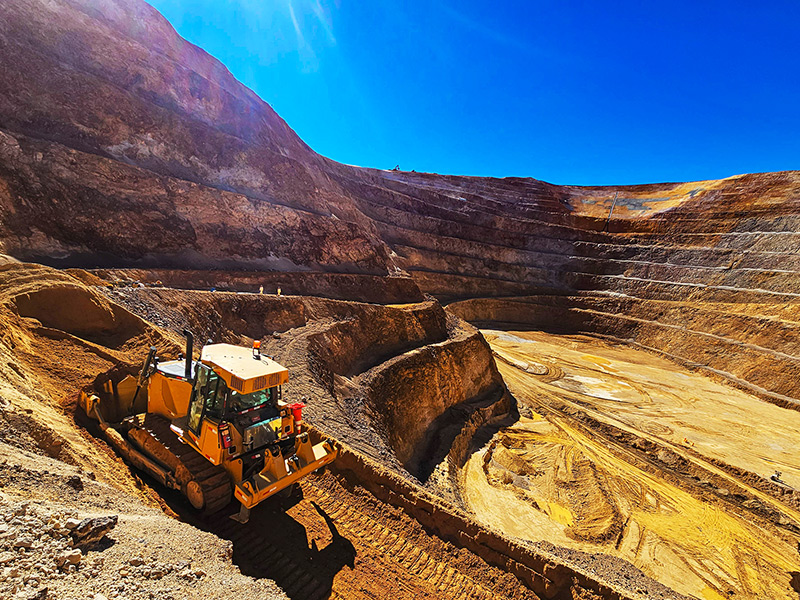
Authors
-
Michael Rohwer
Former Director, Technology Sectors, BSR
Before joining BSR, I directed the Conflict-Free Sourcing Initiative (CFSI) at the Electronic Industry Citizenship Coalition (EICC). During that time, the CFSI helped make tremendous progress around ensuring a conflict-free mineral supply chain: CFSI membership more than tripled, the first tungsten smelters were validated as conflict-free, and the total volume of validated conflict-free tin, tantalum, tungsten, and gold (3TG) grew exponentially. We also saw the rise of a standardized reporting tool, called the Conflict Minerals Reporting Template (CMRT), which companies now share among one another to identify the smelters and refiners in their supply chains.
Since joining BSR—where we place significant emphasis on the role of collaboration to create systemic change—I’ve reflected on what we achieved with the CFSI and how to increase those impacts.
My conclusion is that too many companies focus on requesting reports from suppliers and sending reports to customers without addressing the real social and economic issues at stake. Today’s paper-only exercise strips resources away from companies actually investing in changes on the ground.
To get out of the request-and-report resource drain and into a position where their conflict minerals programs create real and positive social impacts, companies should broaden and deepen their conflict minerals work. This will help break the link between mineral extraction and serious human rights abuses.
Companies can do this by broadening their geographic focus and responsible procurement efforts and deepening their transparency efforts and partnerships to engage government.
Geographic Expansion
To date, most programs have focused on the Democratic Republic of the Congo and its surrounding countries and only on 3TG. However, these challenges exist around the globe and exist regardless of the mineral. Numerous programs, organizations, and initiatives have emerged to address human rights in minerals and materials extraction more broadly, including the EICC’s Responsible Raw Materials Initiative, European Partnership on Responsible Minerals, the Initiative for Responsible Mining Assurance, the Responsible Cobalt Initiative, and others. Companies should look to see which of these target the right minerals, issues, and geographies for their risk profile.
Responsible Procurement
Companies should take a systemic approach to their procurement. As the OECD Due Diligence Guidance for Responsible Supply Chains of Minerals from Conflict-Affected and High-Risk Areas (OECD Guidance) correctly contemplates, the link between minerals extraction and serious human rights abuses exists regardless of geology or geography. For companies to truly meet this expectation, as well as the UN Guiding Principles on Business and Human Rights, they need to take a system-wide approach. This means that companies should look at the full suite of minerals in their products and use the existing systems to determine the source of the minerals in their supply chain across that full suite. If those refiners have clear information on the mines from which they source via a set of agreed-upon metrics (more on that below), they can provide assurance to their downstream customers as to their products’ provenance and impact. While it sounds complex, the CFSI and others have created a strong foundation and shared tools to accomplish this.
Meaningful Transparency
To break the link between minerals and serious human rights abuses, companies need information about the conditions at the extraction sites, and simply exchanging CMRTs back and forth across the supply chain does not give companies the right kind of information to do this. Furthermore, investors are increasing the pressure on mining companies to provide more transparency as to the human rights conditions at extraction sites. The challenge requires a common set of metrics, KPIs, and criteria regarding the conditions at the mines that can be shared across the many tiers of the supply chain. Doing so would make it easier for smelters to have a clear sense of their suppliers’ sustainability practices and provide further assurance to downstream companies and investors. While that may sound daunting, many structures are already in place to efficiently share this information. For example, Apple’s recent Supplier Responsibility Report is the first to include cobalt in its conflict minerals disclosure using a similar model to its 3TG efforts. This shows that it is possible for companies to expand on the existing efforts to include minerals beyond 3TG.
Partnering on Government Engagement and Supporting Rule of Law
Companies should take what they learn from their responsible procurement practices to identify and collaborate with initiatives designed to support rule of law, good governance, and sustainable economic development where they obtain minerals. No single company can break the link between minerals extraction and human rights abuses, because that link is often the result of a lack of rule of law and government’s ability to protect human rights. However, companies can collaborate and speak with a unified voice to those governments. They can apply their business pressure to push for reforms and action on the part of those governments. With meaningful transparency from the mines to the brands, combined with system-wide responsible procurement, companies can collectively identify the geographies and minerals that are most critical and focus their government engagement efficiently.
Now is an important time for companies to act because the policy environment is growing more uncertain. The current U.S. administration has signaled an intent to roll back section 1502 of the Dodd-Frank Act and the SEC Final Rule that compels conflict minerals disclosure in the United States. Meanwhile, the European Parliament just approved regulation that will require importers of 3TG to undertake due diligence in line with the OECD Guidance. With these four principles in mind, companies should rally together behind the OECD Guidance and UN Guiding Principles frameworks, use the resources available from the emerging initiatives, and move forward to break the link between minerals trade and human rights abuses.
Topics
Let’s talk about how BSR can help you to transform your business and achieve your sustainability goals.







